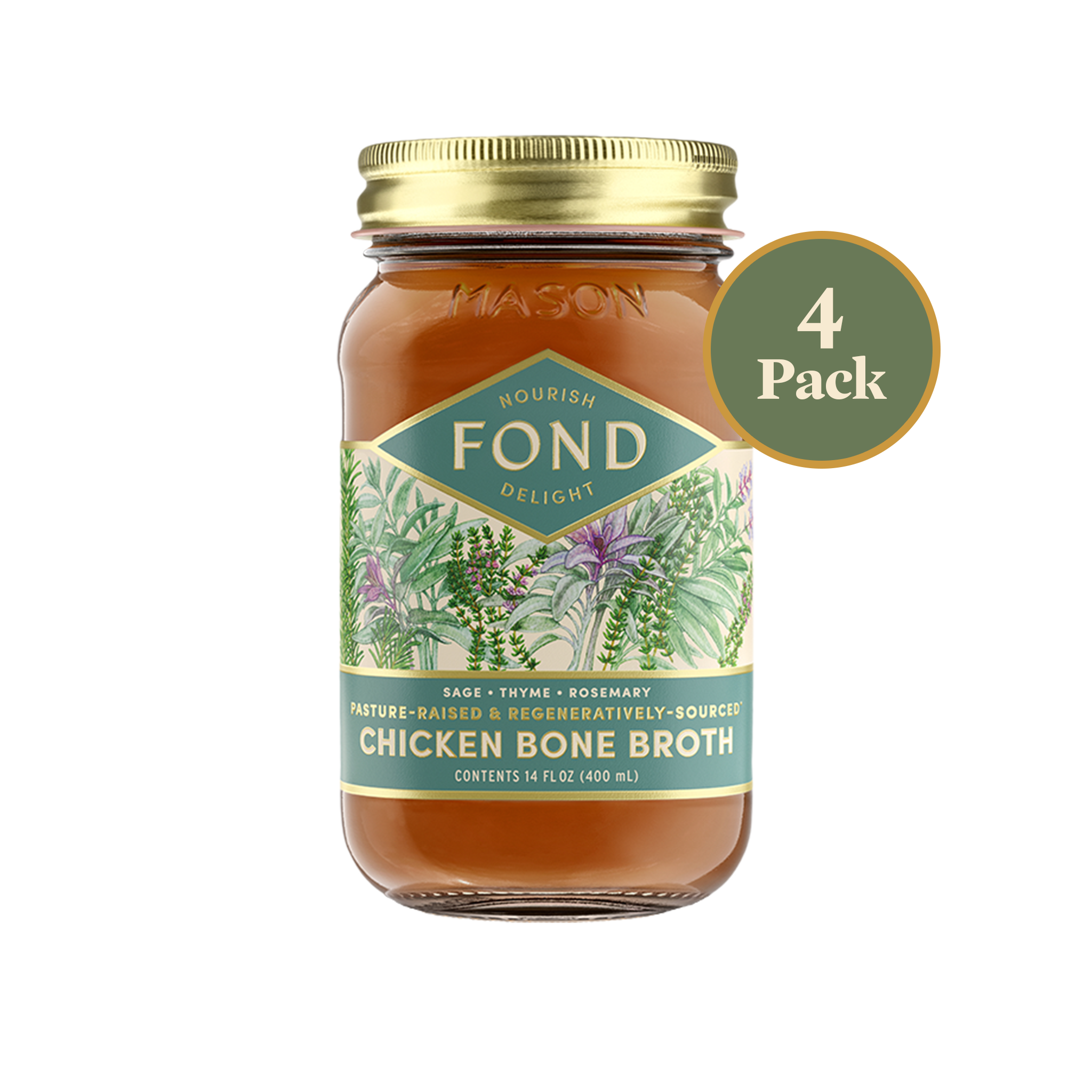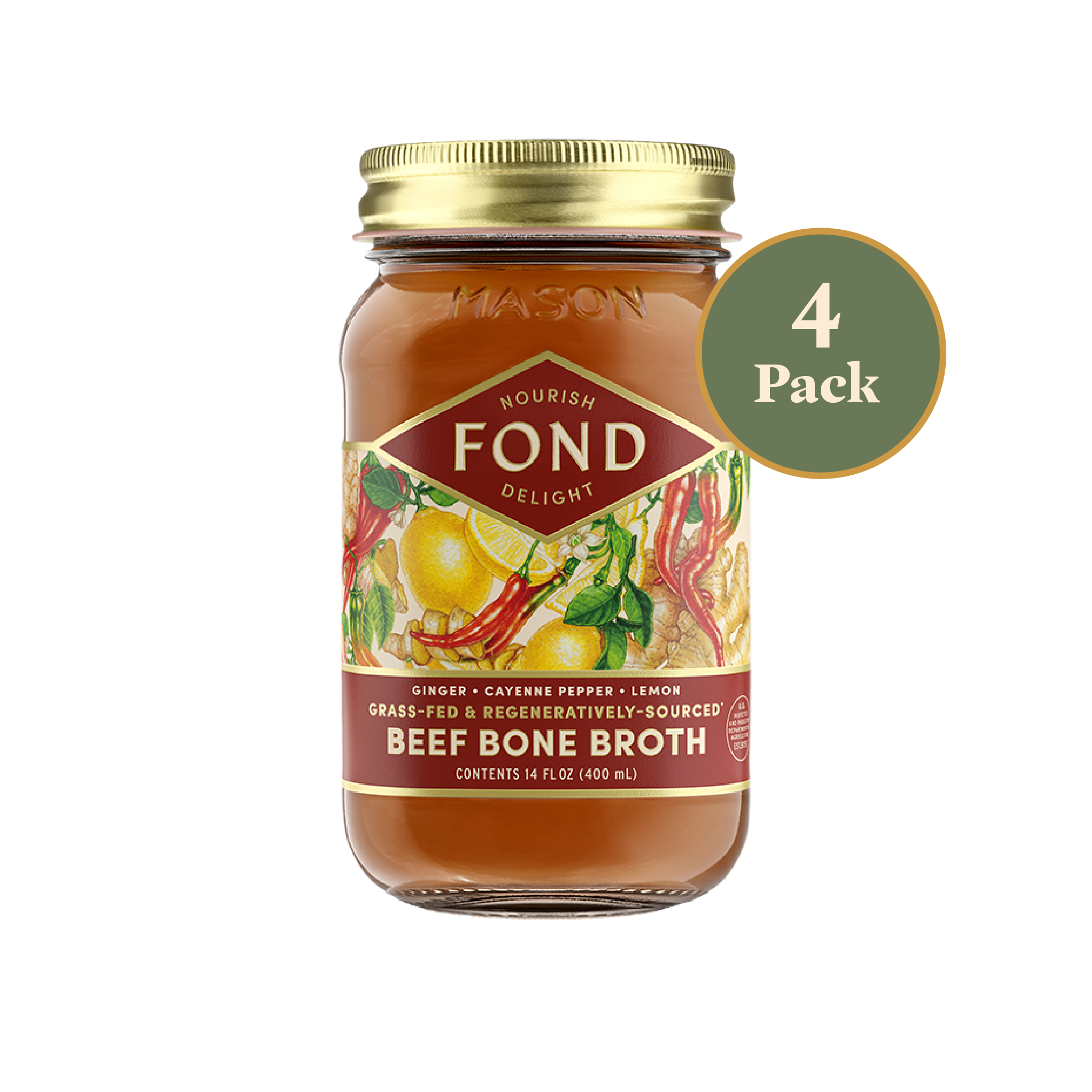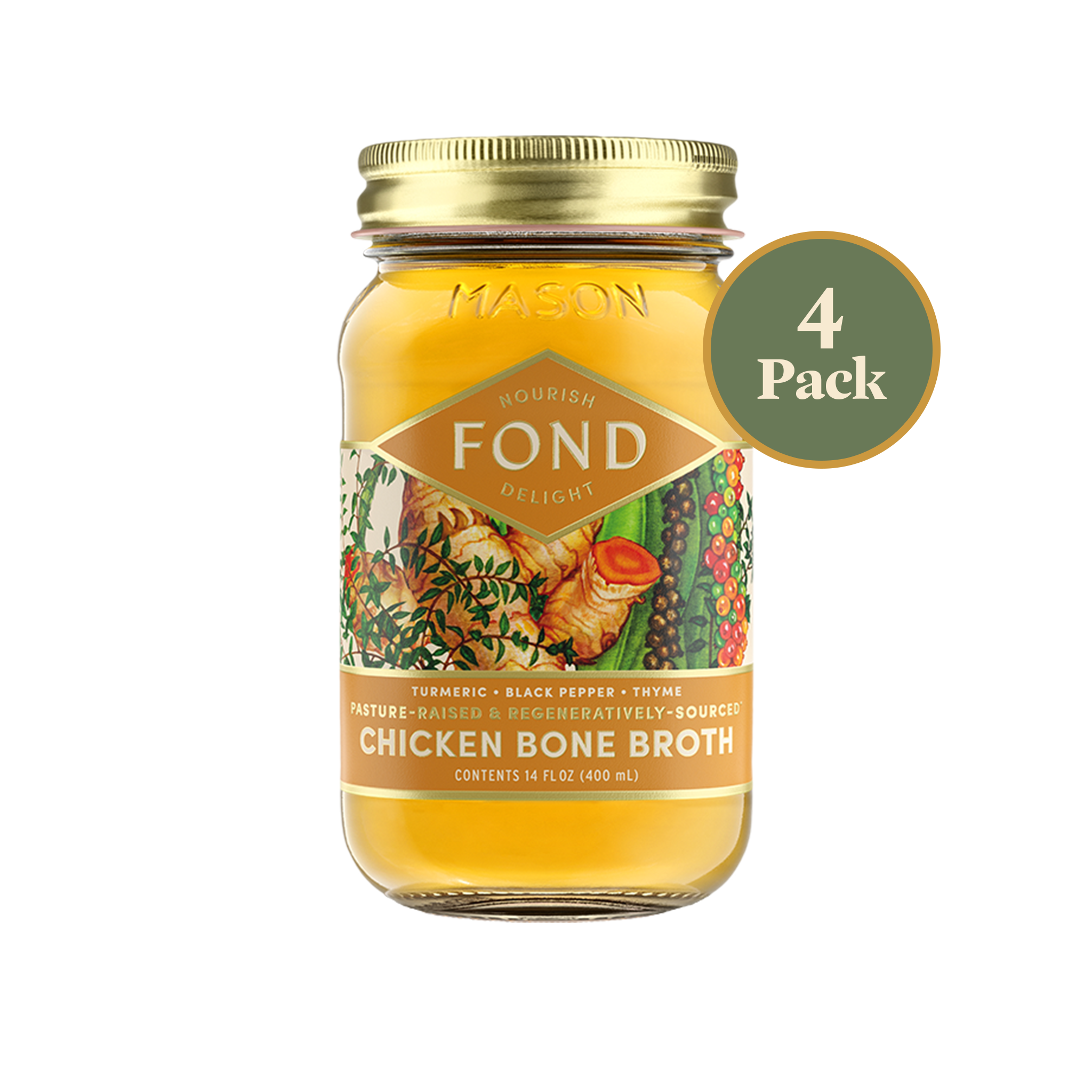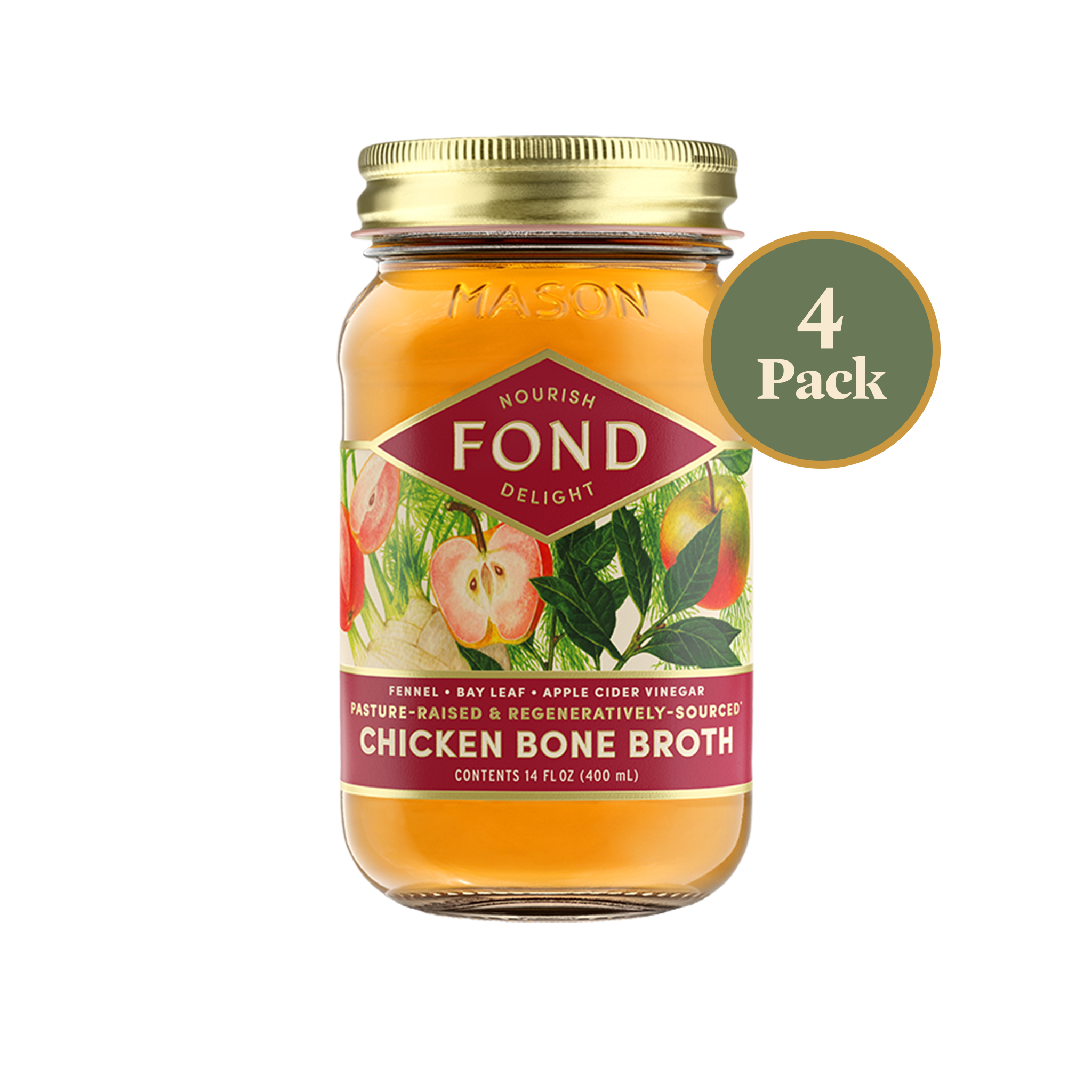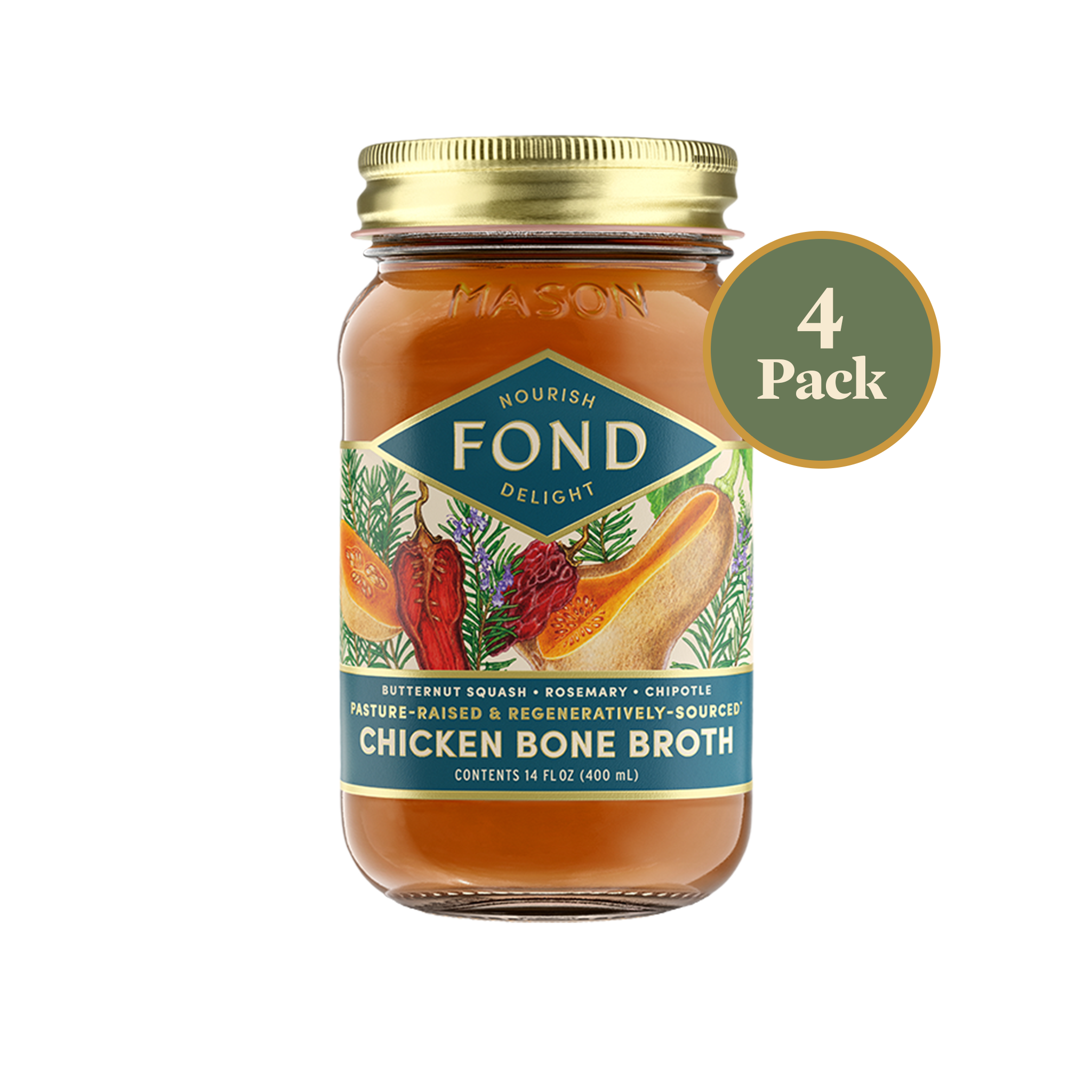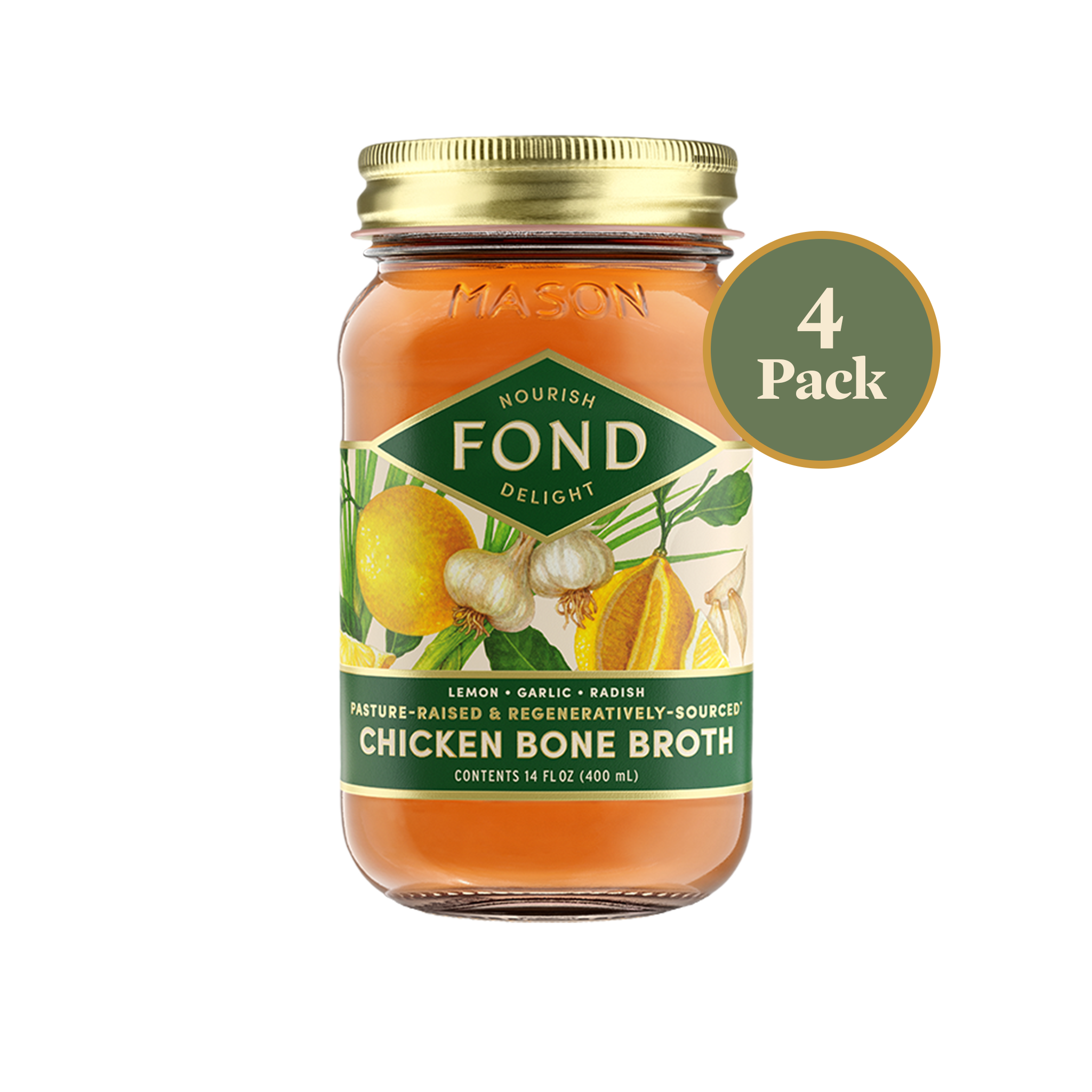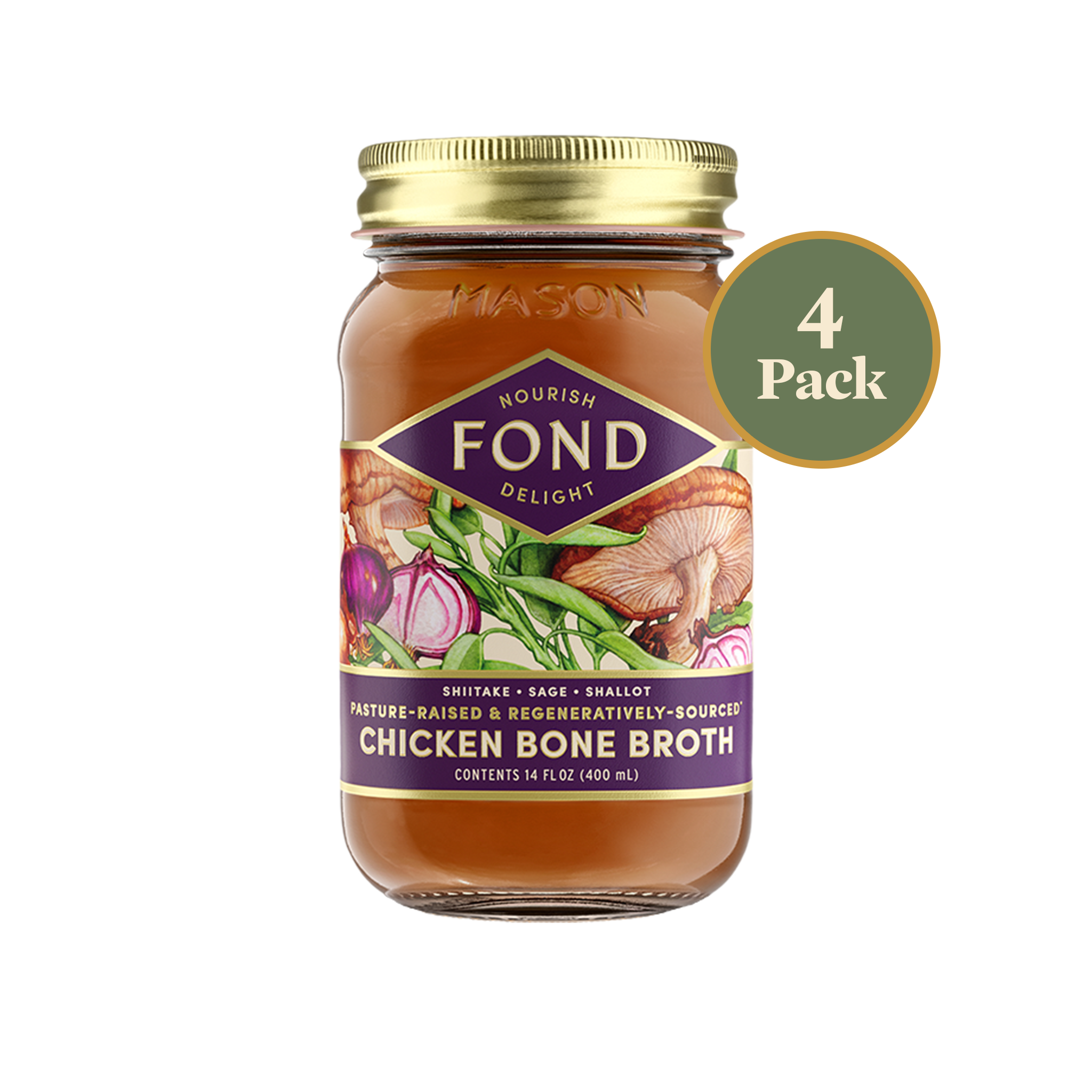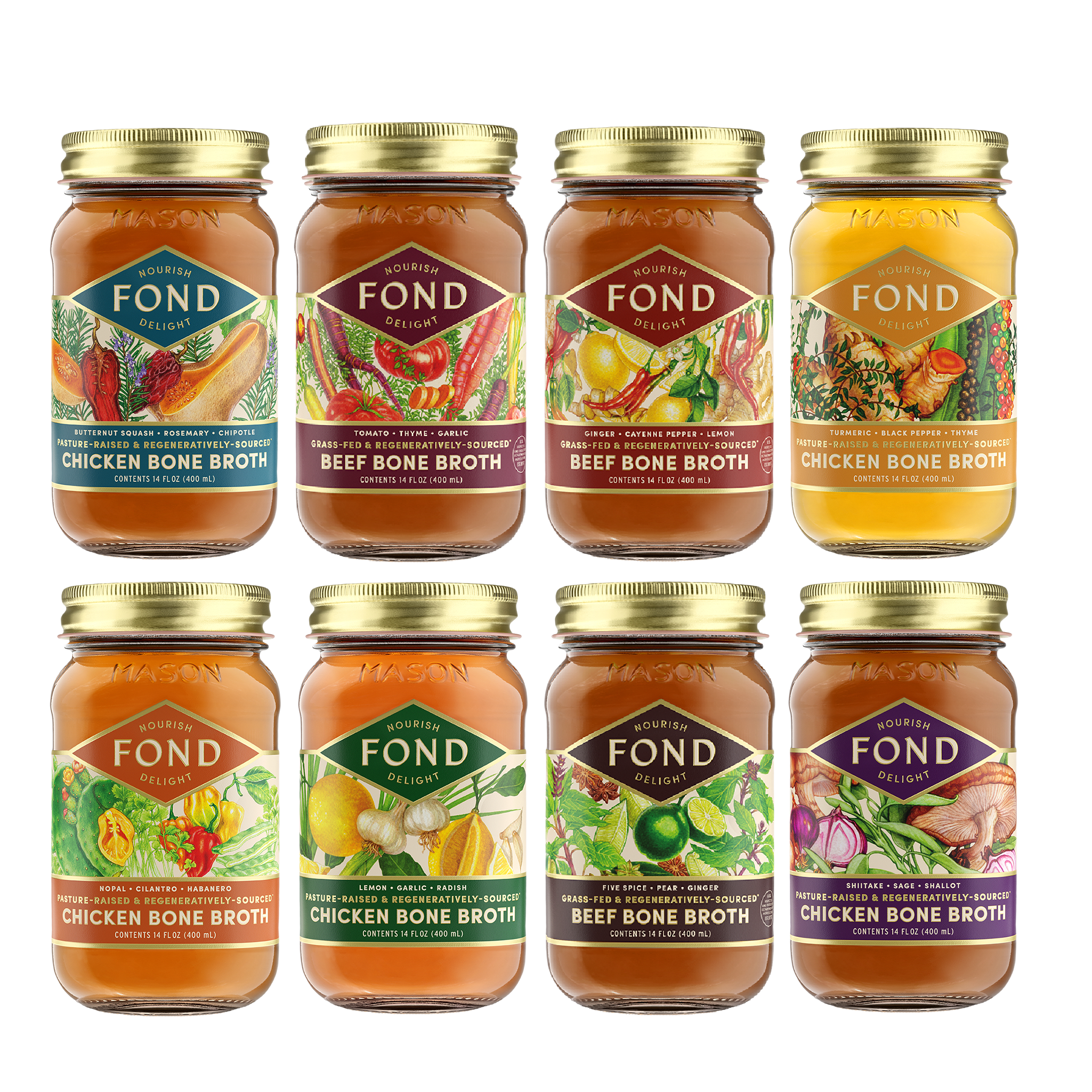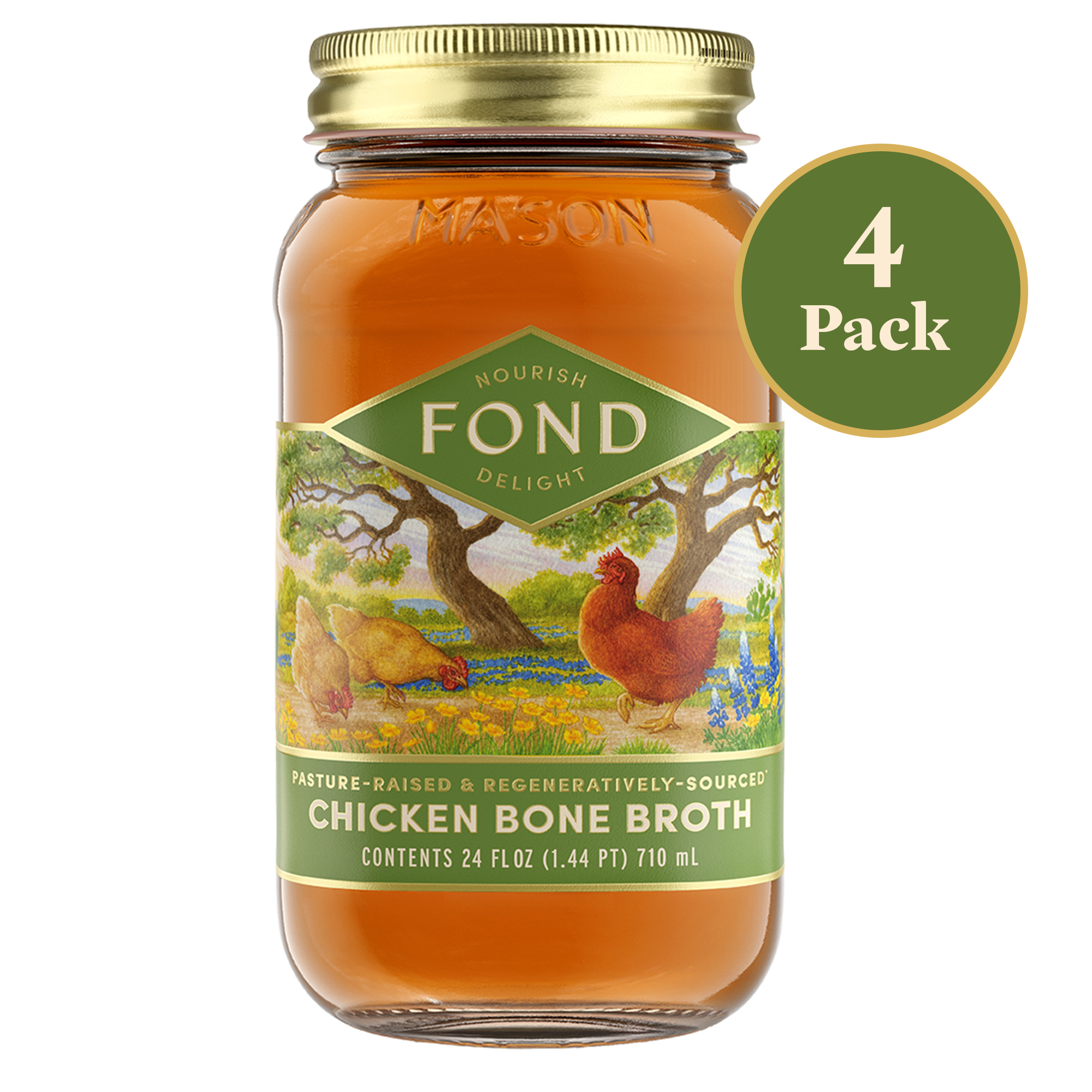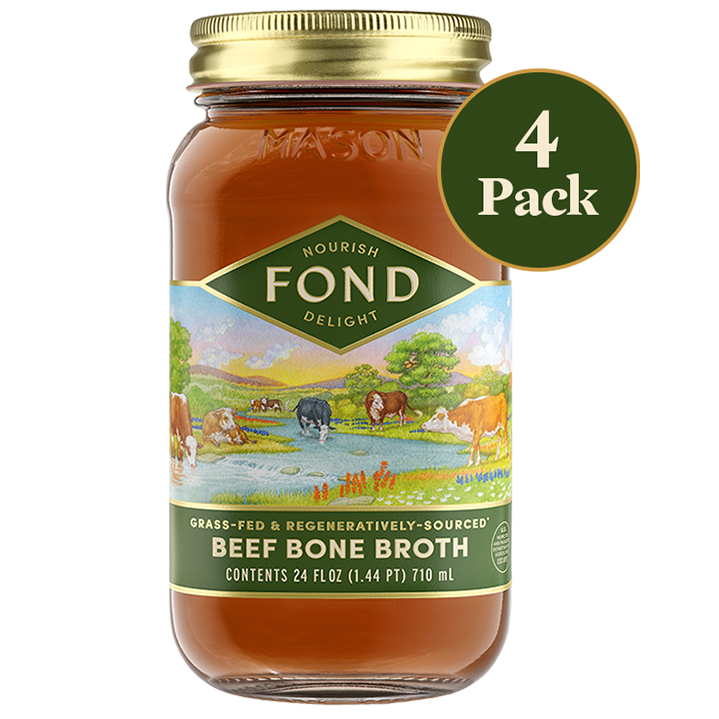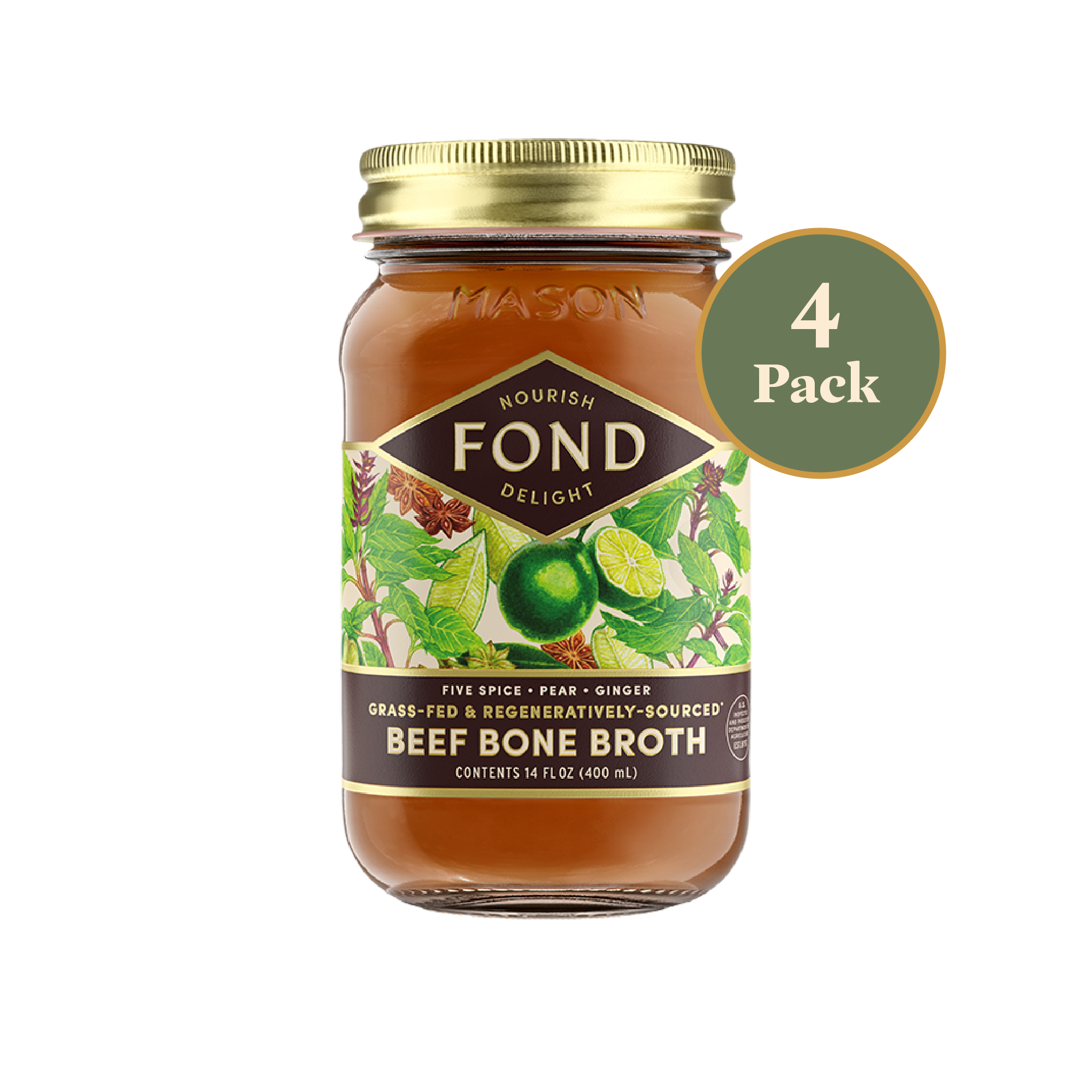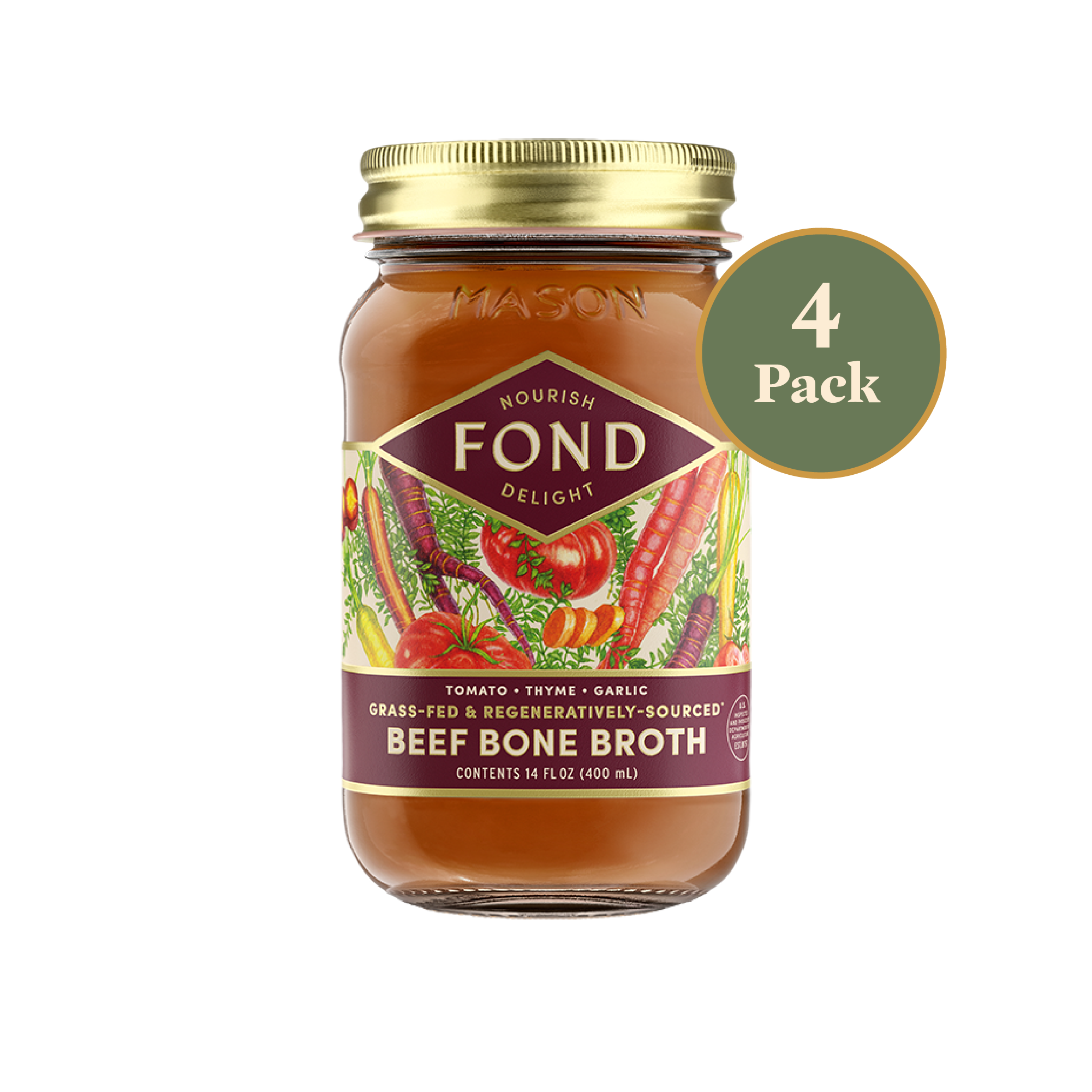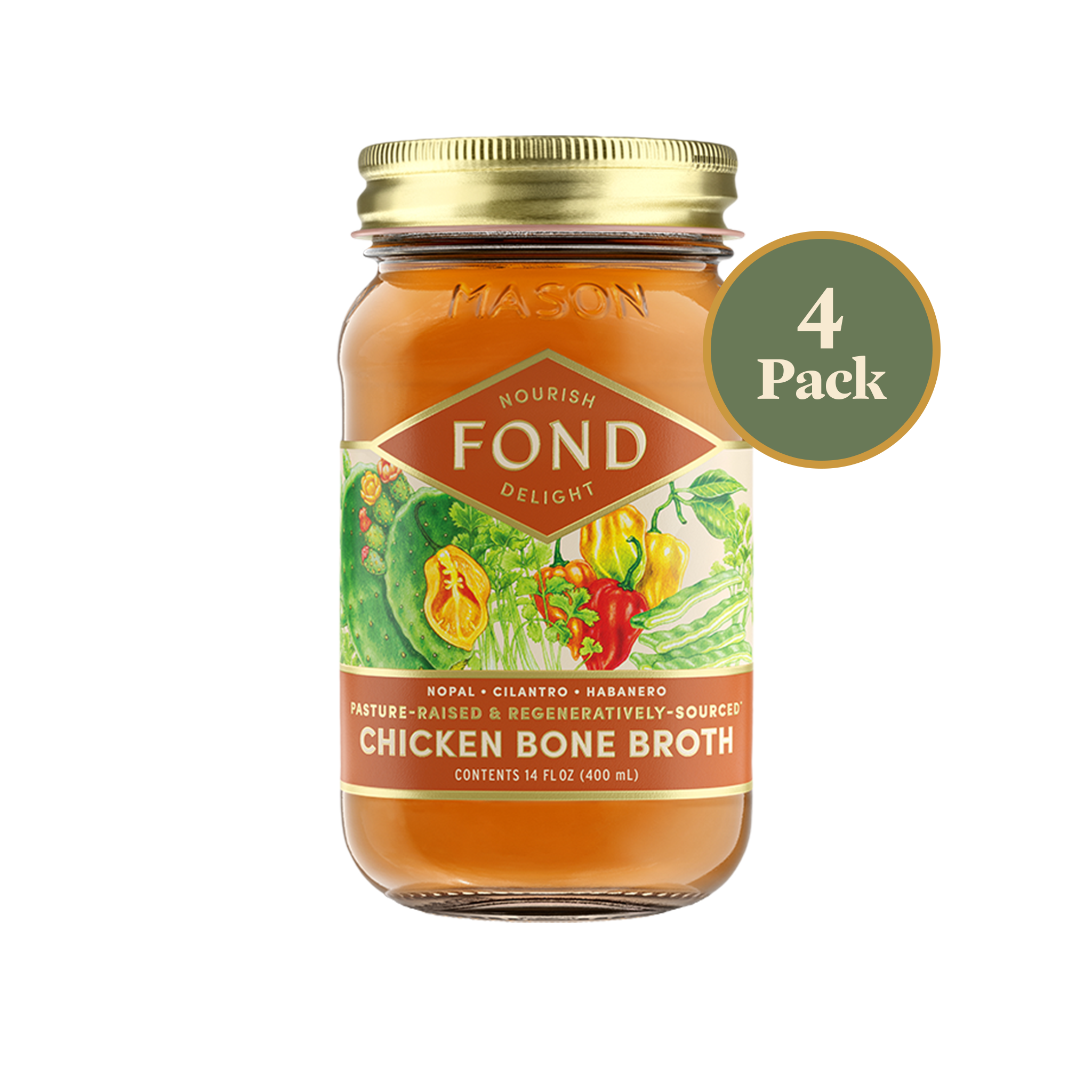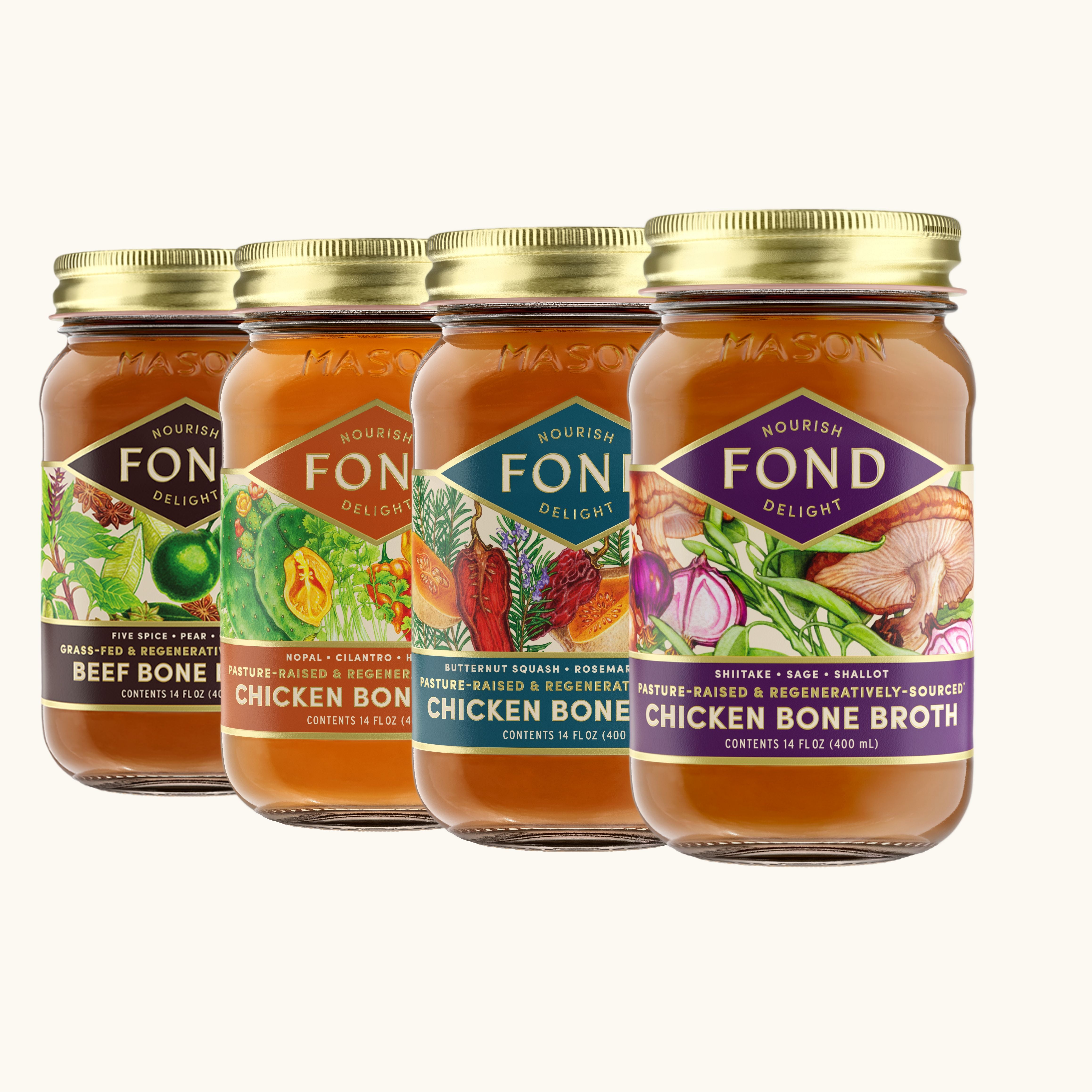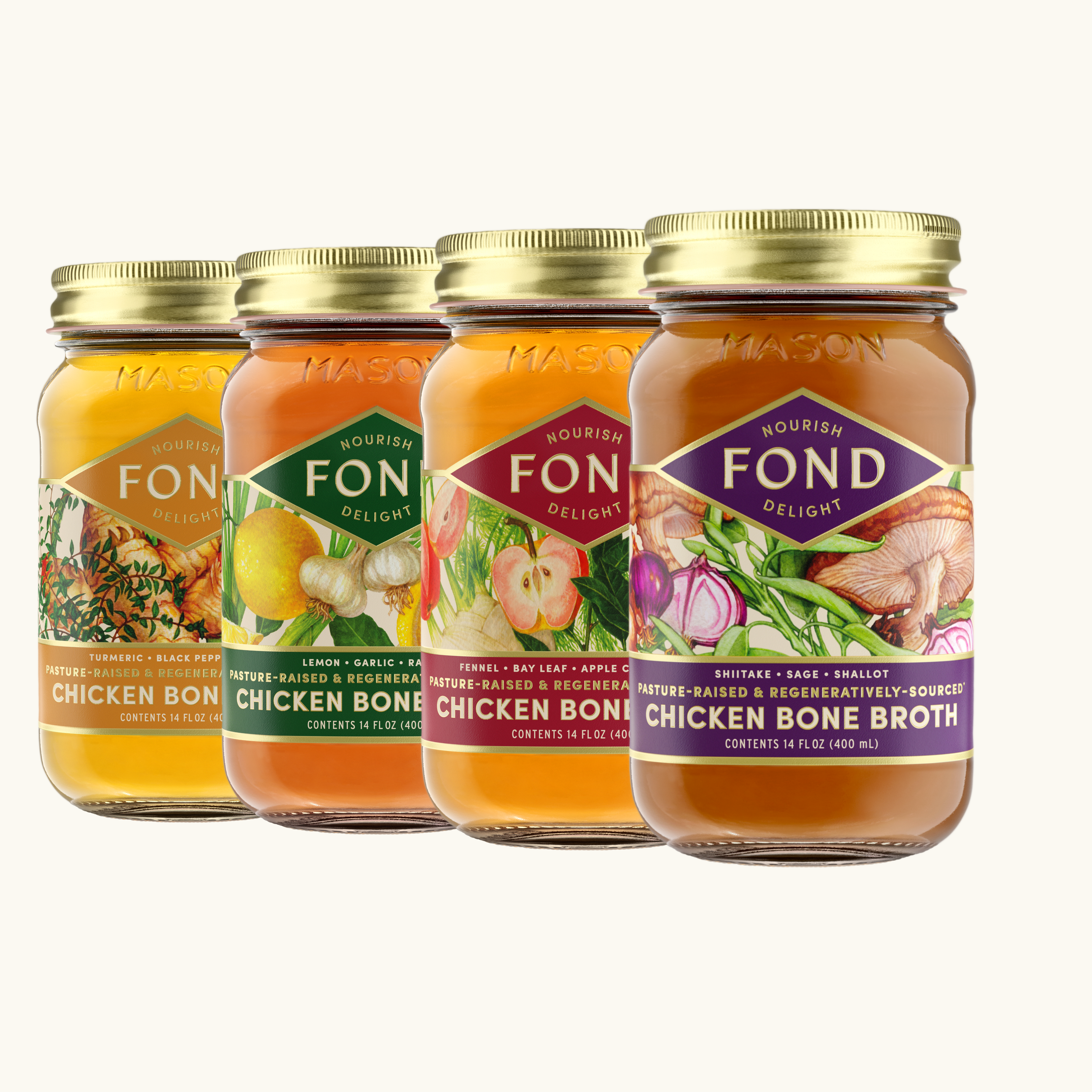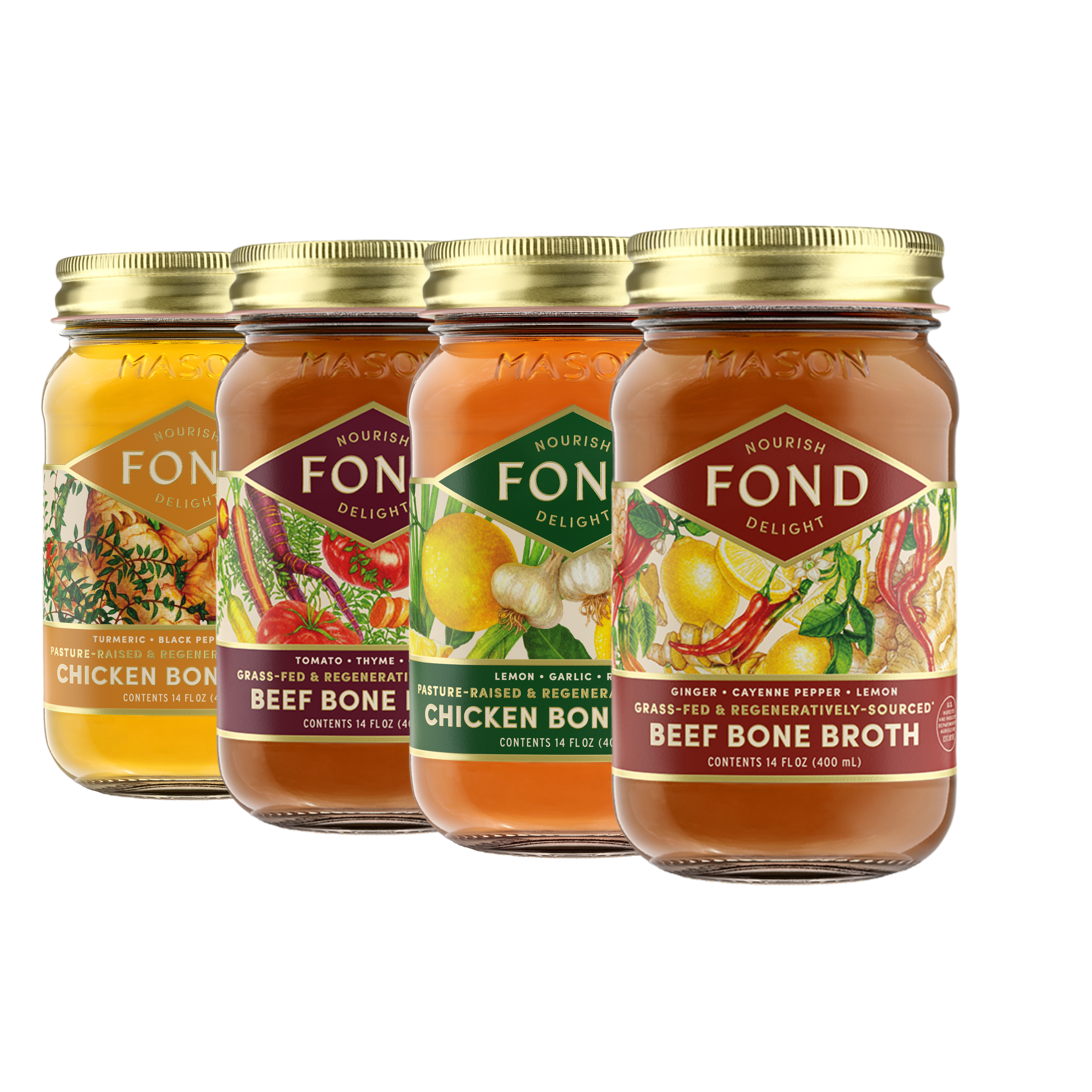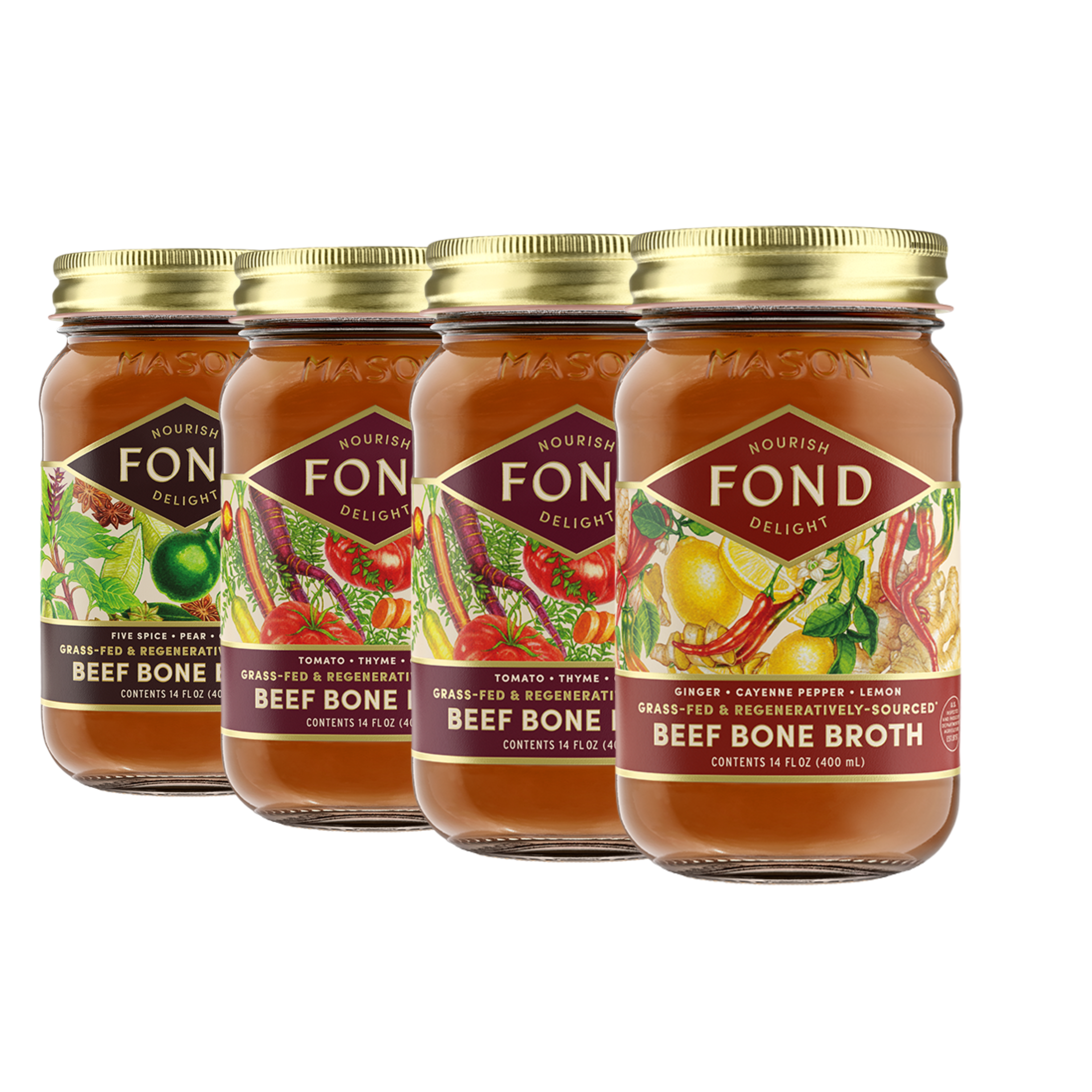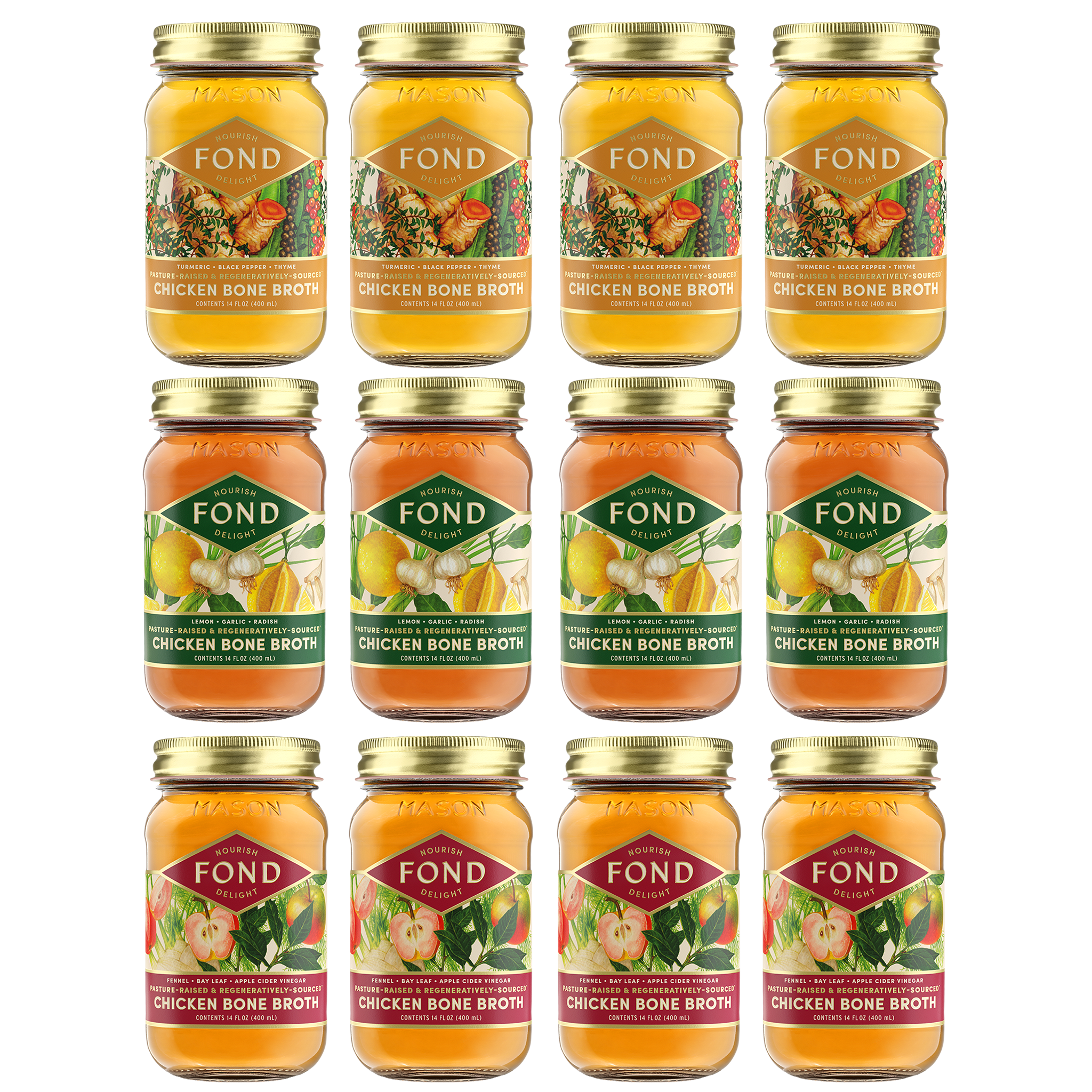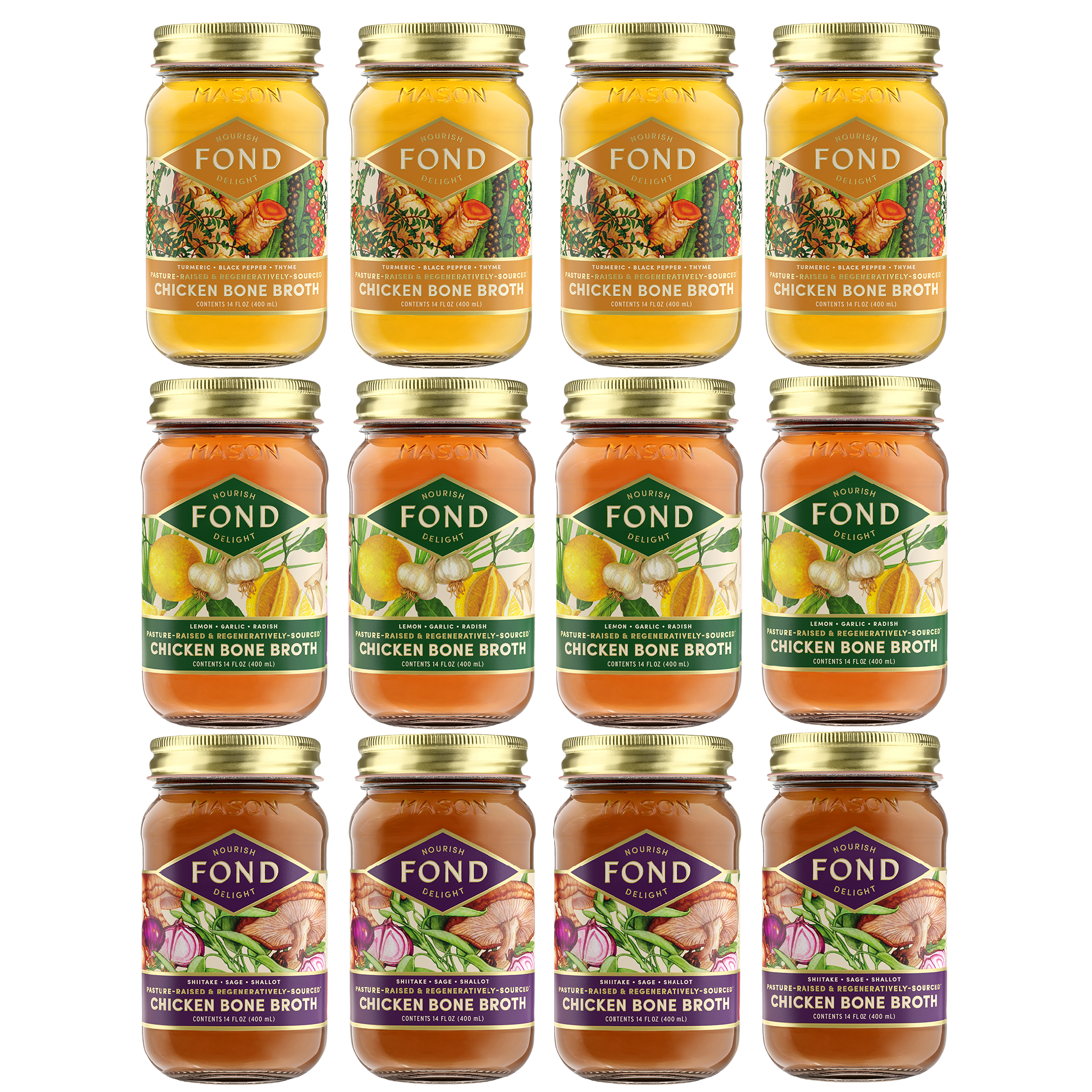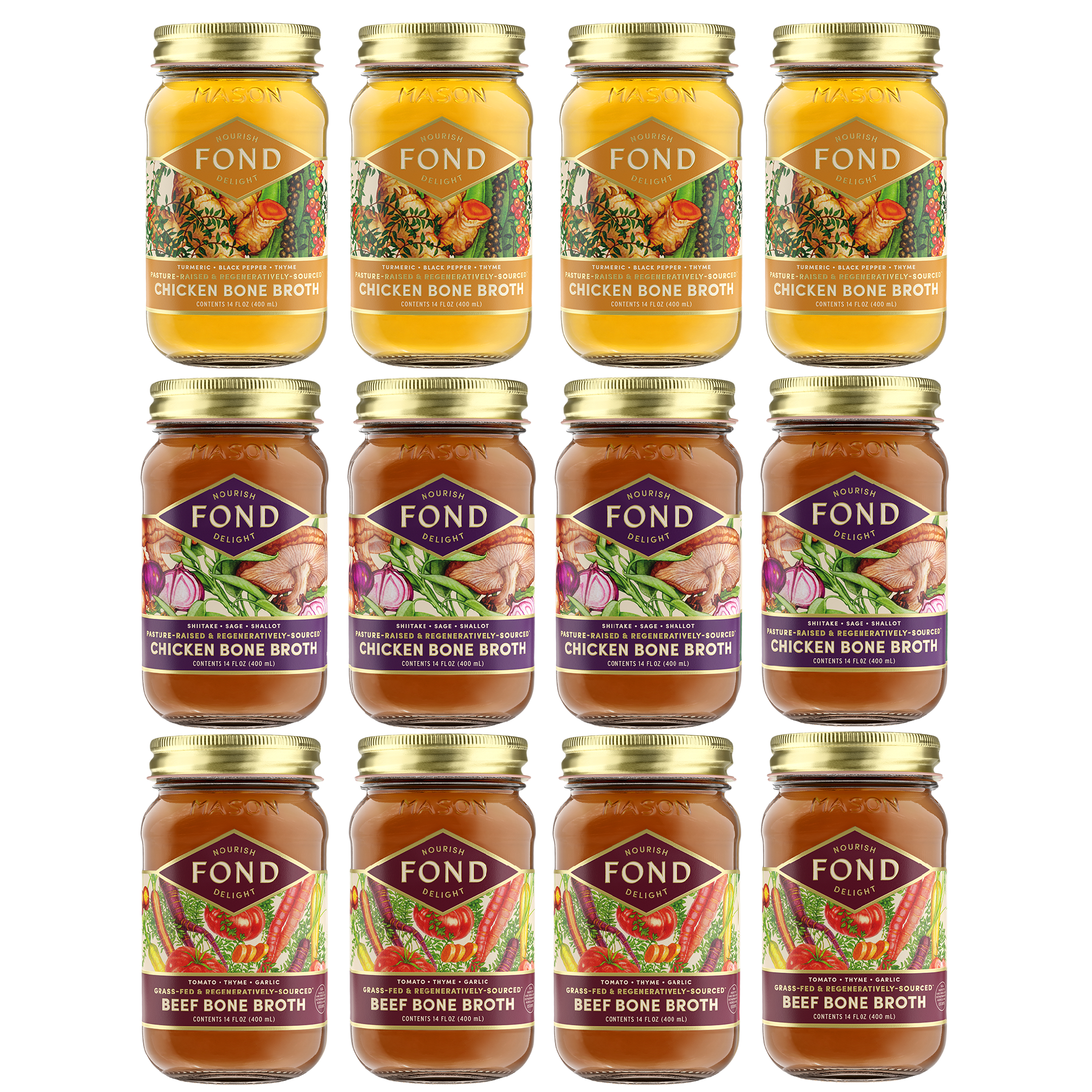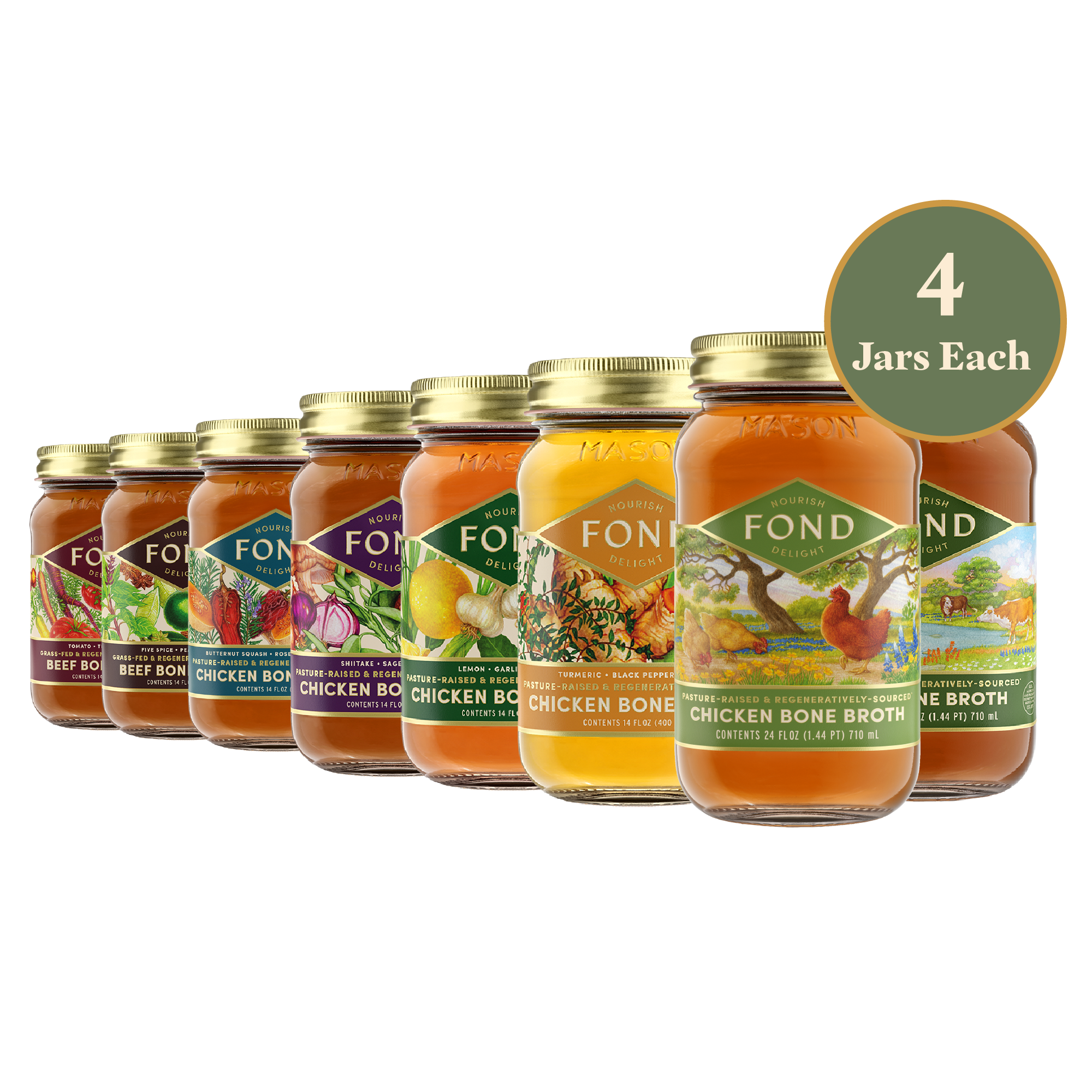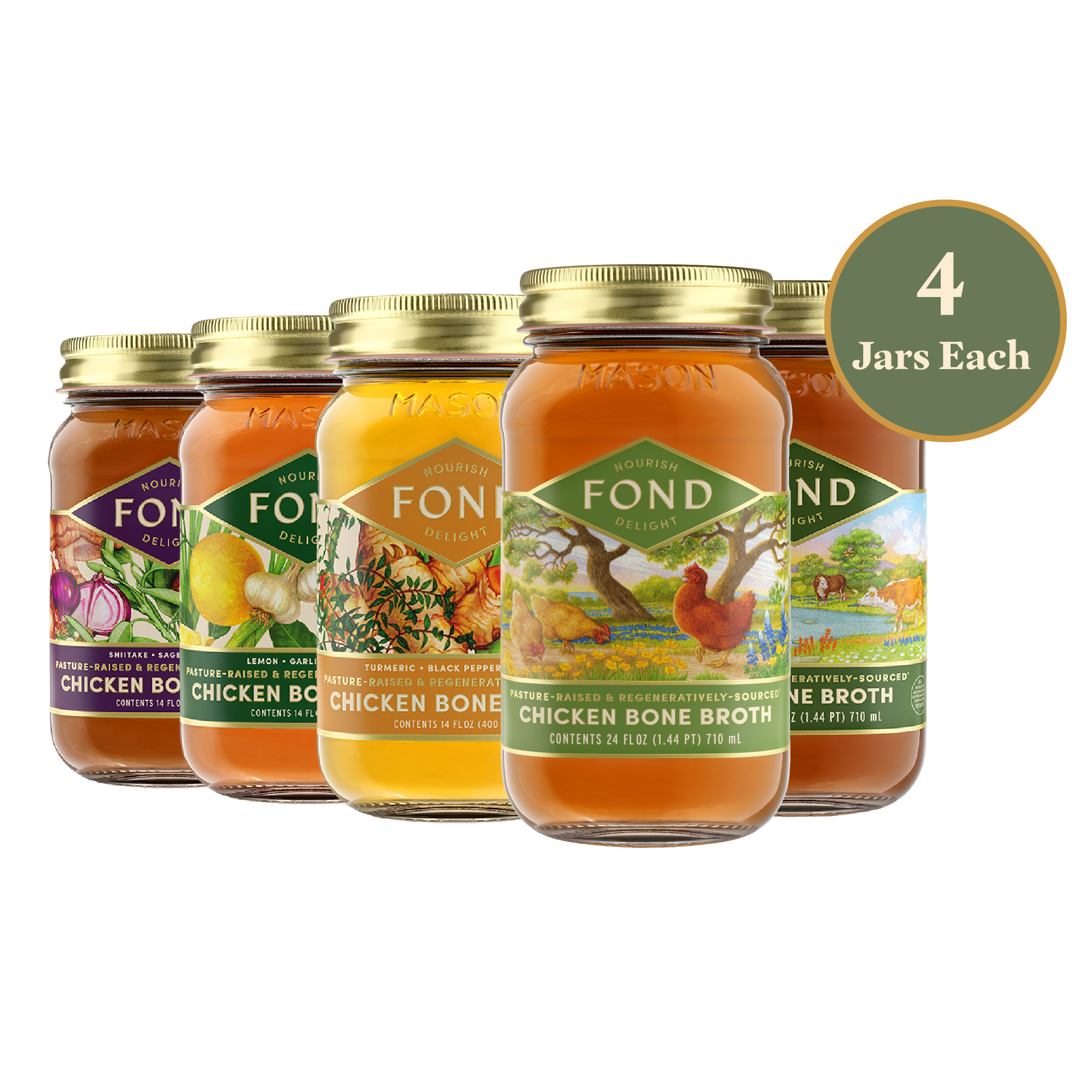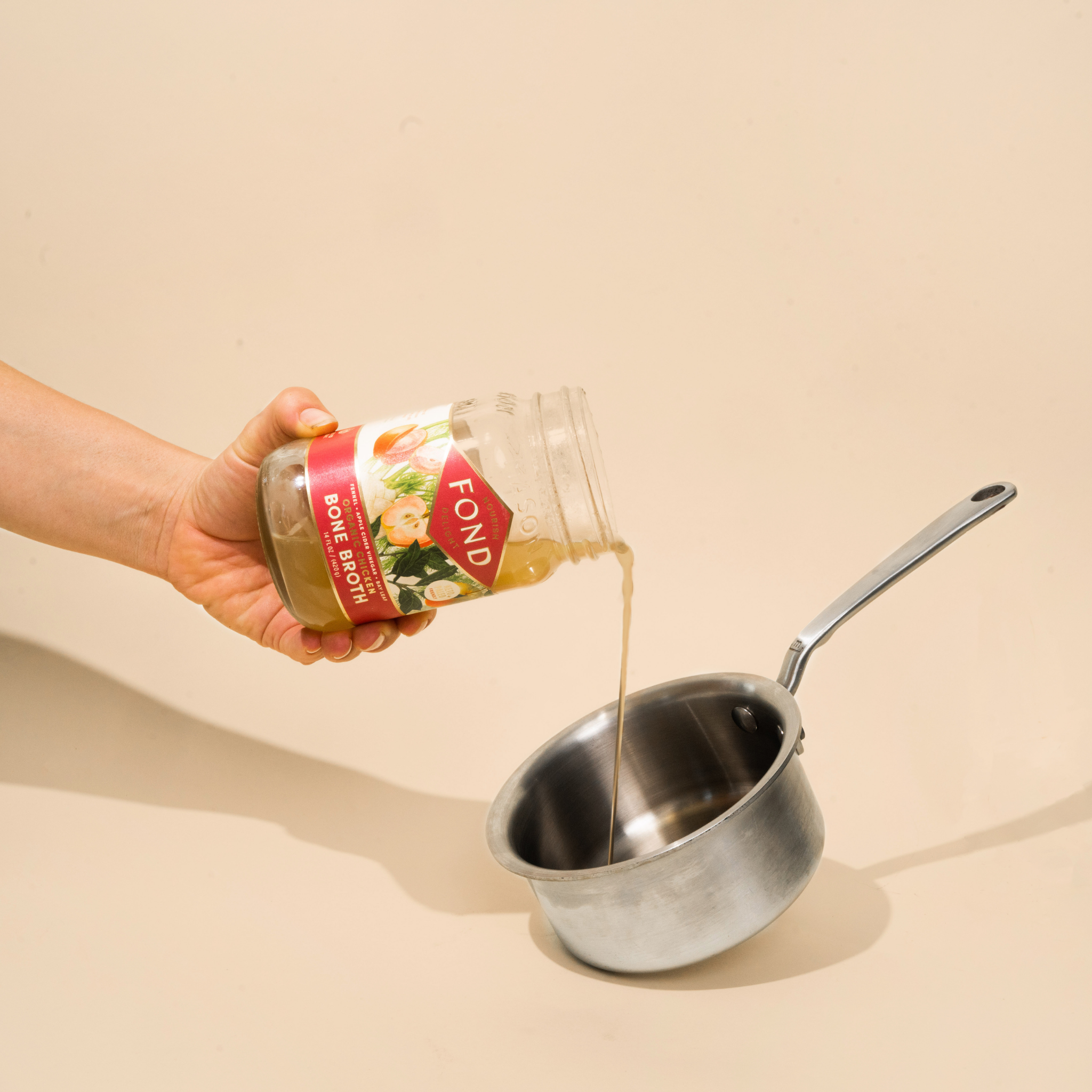Collagen is quite the buzzword these days, and for good reason! But not all collagen is created equal. Today we’re going to talk about what collagen is, its benefits, the different types, and how bone broth plays a role.
What is collagen?
Collagen is the most abundant protein in the human body, found in bones, muscles, skin, and tendons. Collagen is a hard, insoluble, and fibrous protein that makes up one-third of the protein in the human body. It is the "glue" in your body that quite literally holds everything together.
The benefits of collagen
Collagen has many incredible health benefits including:
- Maintaining a healthy gut barrier
- Improving the appearance of skin/hair/nails
- Improving joint health and bone formation
- Supporting heart health
- Supporting liver function (including its ability to detox)
- Supporting a healthy weight
- And finally, helping to reduce cellulite
There are a few amino acids found in high percentages within collagen, and they have some pretty important roles and big benefits, too.
Proline
Proline actually makes up 15% of collagen. Proline helps protect the blood vessels, supports joint health, and benefits your cardiovascular system.
Glutamine
Glutamine is an abundant (and super important!) amino acid in the body. It’s considered non-essential, since your body can produce it, but most of us need more than we think. Adequate glutamine isn’t produced if you’re in less than stellar health, if you’re ill, or dealing with any other issues. Glutamine has a wide-range of benefits, including helping with gut healing, reducing tension, reducing anxiety, increasing energy, and supporting the immune system. It even supports mental health by helping with the release of GABA. And glutamine also creates nitrogen, which helps with wound healing and supports the muscles and joints.
Glycine
Glycine is present in large amounts in collagen - approximately ⅓ of the protein found in collagen is glycine. Glycine helps your DNA remain healthy and creates creatine, which supports muscle growth and improves workout performance by increasing energy production during workouts.
Arginine
Arginine has a lot of benefits, from improving circulation and strengthening the immune system to supporting arterial and heart health (since it breaks down into nitric oxide within the body).
If you’re consuming adequate collagen, you’re also getting more of these vital amino acids!
The different types of collagen
There are 28+ different types of collagen in the human body, and with each type comes different benefits.
Type I Collagen
Type I collagen is found in the highest concentrations in bone broth. Of types I, II, and III, type I is the richest and most robust form of collagen, making up 90% of the collagen in your body. It's made of densely packed fibers.
Type I collagen provides structure to skin, bones, tendons, fibrous cartilage, connective tissue, and teeth. This form of collagen can be found in the tendons (which connect muscles to bone) and aids in wound healing and bone formation. Without it, your ligaments would tear off the bone.
Type II Collagen
Type II collagen is highest in turkey and chicken bone broth and is the primary collagen type found in cartilage. This type is made of more loosely packed fibers and found in elastic cartilage, which cushions your joints. It’s key for the immune system and digestive support, especially for healing and sealing the gut lining.
Type III Collagen
Type III collagen is highest in beef bone broth, and it’s found in connective tissues like skin, lungs, uterus, intestines, and the vascular system. This type of collagen supports the structure of muscles, organs, and arteries. It gives skin its firmness/resilience and also forms our blood vessels and cardiovascular tissues.
Collagen and bone broth
As you age, your body produces less and less collagen, so it is important to supplement with collagen in your diet. Since bone broth contains plenty of naturally-occurring collagen, sipping or cooking with it is an easy way to add collagen into your daily routine.
Other sources of collagen include powdered collagen, eggs, gelatin, and fish with the skin on. Vitamin C actually helps your body better absorb collagen, so consuming any of the above foods with a source of vitamin C (like citrus fruits!) is a great idea.
Bone broth is made by cooking the bones of animals such as chicken, beef or fish in water. Through the 20+ hour simmering process, gelatin (the cooked form of collagen) is pulled out of the bones and into your bone broth, giving you a lot of nutrients that you miss out on when simply eating muscle meat (which most of us eat almost exclusively!). This nose-to-tail method of eating assures that we don’t let any of the animal go to waste, while also giving the added bonus of extra nutrients. And we may be biased, but we think it tastes pretty delicious, too.
Other benefits of bone broth include:
- Improving gut health
- Decreasing inflammation
- Boosting immune health
- Promoting healthy bones (thanks, collagen!)
- Promoting healthy hair, skin and nails (thank you again, collagen!)
- Reducing joint pain and improving joint health (hi, collagen!)
- Aiding in weight loss and satiety
- Improving sleep
Want to boost your collagen intake and drink something that tastes good while doing it? That’s what we’re here for!
Sources:







